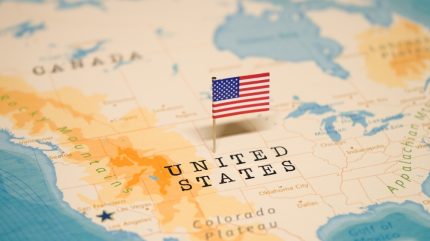
The DHS’ UFLPA Entity List now prohibits goods from a total of 65 entities from being imported into the US market.
The list includes include cotton traders and warehouse facilities within China, the majority of which operate outside of the Xinjiang Uyghur Autonomous Region (XUAR).
DHS argued that by focusing on organisations based outside of the XUAR, that source cotton from the region, their designation “will increase transparency and ensure responsible companies can conduct due diligence on their supply chains to ensure they do not include goods made with forced labour.”
NCTO’s Glas views the announcement as an important step forward in enforcing anti-forced labour legislation in the US, sending a clear signal to known offenders, enterprises, and governments. She emphasised that Chinese cotton produced with forced labour in Xinjiang is infiltrating global markets, including the US.
Highlighting that 76% of Chinese cotton products contain Xinjiang cotton, Glas also pointed out that textiles and apparel made with forced labour are penetrating global supply chains, notably in Asia and free trade agreement regions. She stressed that this issue extends beyond cotton to include man-made fibre products.
Glas expressed concern about the potential impact of cotton from XUAR on American textile plants, which have been forced to close and lay off workers due to illegal trade practices undermining the industry’s competitiveness. She advocated for the Entity List to include more companies based outside China involved in trading goods made with forced labour.

US Tariffs are shifting - will you react or anticipate?
Don’t let policy changes catch you off guard. Stay proactive with real-time data and expert analysis.
By GlobalDataShe added: “The US also needs to close the de minimis loophole that is facilitating imported slave labour goods, toxic products and illicit fentanyl and other narcotics. Since the vast majority of de minimis imports are uninspected by CBP, this mechanism allows China and others to ship goods with impunity directly to US consumers that violate our slave labour prohibitions and skirt consumer safety standards.”
Additionally, NCTO has recommended DHS and Customs and Border Protection (CBP) other essential actions to mitigate economic harm and to maximise civil and criminal penalties against trade predators:
- Increased UFLPA enforcement and inspections of imports to prevent textile and apparel goods from entering our market, including in the de minimis environment
- Immediate expansion of isotopic testing of suspected shipments and other targeting tools
- Ramped up textile and apparel enforcement with regard to the Western Hemisphere trade partner countries, including onsite production verification visits and other targeting measures to enforce rules of origin and address backdoor UFLPA violations
The DHS said that the Forced Labor Enforcement Task Force (FLETF), chaired by DHS, is taking these steps as part of the US’ commitment to eliminating the use of forced labour in its supply chain and promoting accountability for the ongoing genocide and crimes against humanity against Uyghurs and other religious and ethnic minority groups in the XUAR.
Secretary of Homeland Security Alejandro N. Mayorkas, said: “The DHS will not tolerate forced labour in our nation’s supply chains. Today’s announcement strengthens our enforcement of the UFLPA and helps responsible companies conduct due diligence so that, together, we can keep the products of forced labour out of our country. We will continue to execute on our textile enforcement strategy and hold the PRC accountable for their exploitation and abuse of the Uyghur people.”
Adding these entities to the UFLPA Entity List is a step forward in DHS’ Textile Enforcement Plan, which focuses on examining and reviewing entities in the textile sector for potential inclusion. The FLETF shared it will continue to assess future designations for the UFLPA Entity List as part of DHS’ broader efforts to combat forced labour.
The 26 newly listed entities consist of cotton traders and warehouse facilities in China, most of which operate beyond the XUAR.



